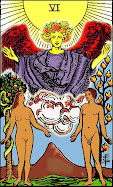They might not even be in training bras yet, but for girls who shop at Abercrombie & Fitch, it's never too early for a padded swimsuit top.
No stranger to controversy, the U.S. retailer has come under intense and well-deserved fire for offering a push-up bikini top to young girls — as in children!
Its "Ashley" bikini — described as "padded" and a "push-up" — was posted on the Abercrombie Kids website late last week.
The company has declined to comment specifically on the controversey, but noted it has since updated the description of its bikini online.
News that a push-up bikini top was being marketed to girls as young as 7, spread like wildfire across the Internet, and a firestorm of complaints to the company erupted from all sources, from parents to sex educators and other professionals.
In response to the overwhelmingly negative groundswell, the company blatantly left the item for sale unchange, but merely removed the word "push-up" from its online catalog. The top is now being offered as a padded, "striped triangle." Bottoms are sold separately.
Obviously, it's up to parents to choose what their children wear, and to reject this type of product. But, what does this say about our culture? Might this horrible push-up bikini saga have broader implications about gender issues? Might tween make-up at Walmart, ubiquitous Disney princesses, high heels for toddlers, the horrendous cable TV show 'Toddlers and Tiaras' and, now, sexy swimsuits for seven-year-olds, be finally pushing the envelope too far? Is this a vision of girlhood that parents never actually meant to sign off on?
I am not a parent, but I loathe the sexualization of children, especially retailers who cross the line merely for profit and publicity. I was molested when I was a girl for a couple of years —ironically beginning when I was 7, so this is a profoundly personal issue to me.
We need to allow children to BE children, to protect them from the pull of adult behavior, especially that of a sexual nature. In addition, the hurtful reinforcement of society's constant mantra: That natural female bodies are always lacking in some fundamental but profound way.
They are never accepted as they are, but must have outside help to be OK; they must always strive to somehow achieve the mythical "perfect" and thus desirable shape and size or they will never gain our culture's (read that men's) ultimate stamp of approval.
Generally, the target of these overt sexualization attempts are directed toward girls, further reinforcing the continued historical objectification of females. Not to mention contributing to making these young girls more appealing to pedophiles!
Another company, the British retailer Primark, faced a similar backlash last year and eventually pulled its padded tops after politicians, including Prime Minister David Cameron, voiced concerns over the swimsuits.
"How is this okay for a second-grader?" asked Rebecca Odes in a recent post on the Babble parenting blog.
"Playing at sexy is an inevitable and important part of growing up. But there's a difference between exploring these ideas on your own and having them sold to you in a children's catalog," she wrote.
Gail Dines, a sociology professor at Wheelock College in Boston, similarly slammed the top, saying it would encourage girls to think about themselves in a sexual way before they are ready.
"It (also) sends out really bad signals to adult men about young girls being appropriate sexual objects," she said.
This is not the first time Abercrombie & Fitch, known for its sexy style of marketing campaigns, has found itself in hot water with consumers.
In 2002, the retailer pulled controversial T-shirts after complaints they were racially insensitive. One shirt showed Chinese laundry workers with conical hats and the phrase, "Wong Brothers Laundry Service: Two Wongs Can Make It White."
In 2003, the company — under pressure from some consumer groups — said it would stop issuing racy catalogs and halt the publication of its holiday book, which featured nude young adult models in sexually suggestive poses.
Another powerful recent consumer backlash comes to mind: The odious pedophile handbook that Amazon finally removed from its Kindle eBook site after literally thousands of complaints.
If you think this issue is frivilous, I assure you it isn't. We need to wake up and see where these trends are heading, and whether we want our children encouraged to behave in more mature sexual ways than they are socially, and emotionally equipped to handle. We also need to understand that by dressing them sexually when they don't even know what that means, they can become targets for twisted adult pedophiles.
Remember, Abercrombie DID NOT remove the offensive product, it merely re-branded it to conform to more acceptable norms. Tell them this is not enough. Tell them the product must be removed, and be vigilant in protecting your children from any product that turns them into sexual objects.
Don't believe me? Take a look for yourself. Do you really want your 7-year-old daughter to hit the beach this summer in one of these?
— The Curator
Tuesday, March 29, 2011
The Further Sexualization of Children
Labels:
abercrombie,
bikini,
children,
girls,
padded,
primark,
push-up,
sexualization
Subscribe to:
Post Comments (Atom)





No comments:
Post a Comment